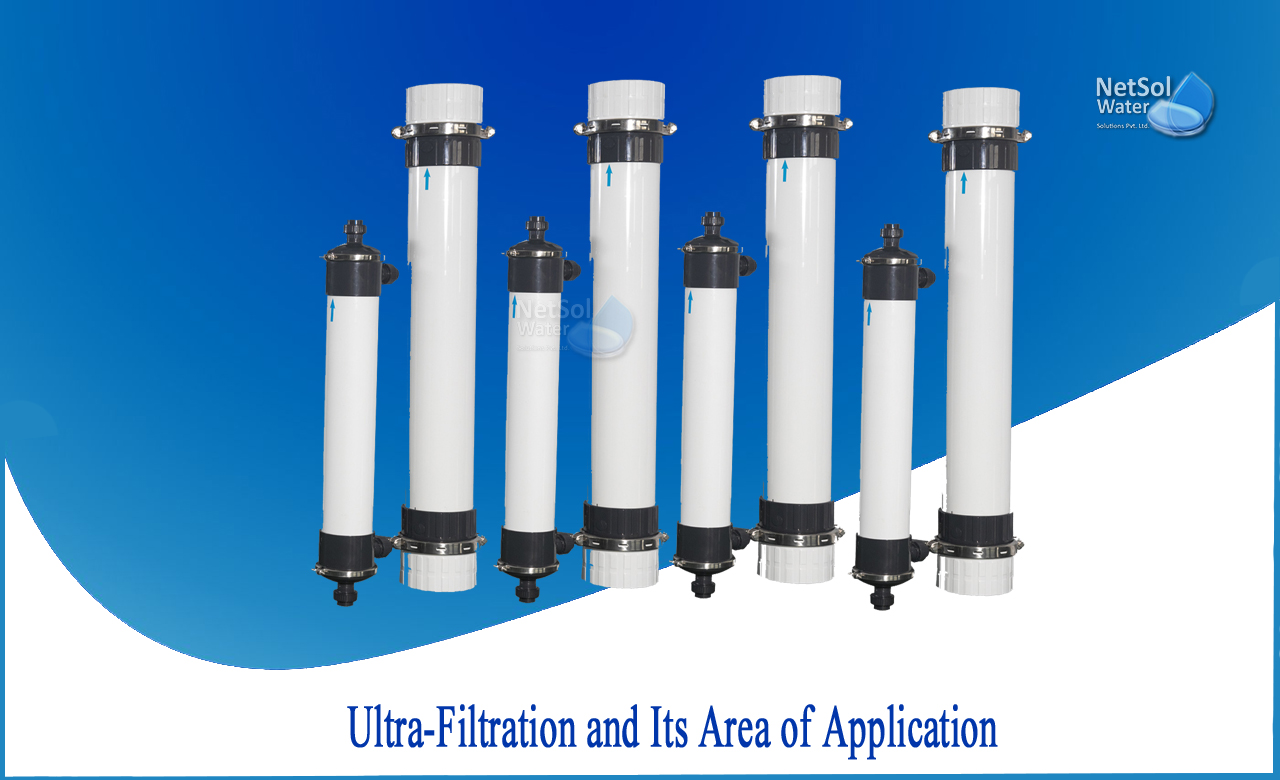What is the area of application of Ultra-filtration?
Ultrafiltration is an analytical technique that separates a semi-permeable membrane using a force such as pressure or a concentration gradient. Suspended solids with a high molecular weight cannot pass through the membrane in this method, but water and solutes with a low molecular weight can. The retentate is the residue that cannot flow through the membrane, whereas the permeate or filtrate is the portion that can. This method is advantageous in the purifying and concentrating operations.
Industrial applications
1: Process Water: Process water is any water that is directly employed in an industrial manufacturing process. In a secondary or tertiary capacity, UF filtering may be a beneficial procedure for lowering or eliminating many of those potential pollutants.
2:Pre-treatment with RO: Membrane filters require pre-treatment methods in order to operate at peak performance for as long as feasible. Pre-treatment avoids membrane fouling and lowers maintenance expenses. In the case of reverse osmosis, UF filtration works extremely well as a pre-treatment step to reduce the load on the RO membrane by extracting slightly bigger particles and microbiological contaminants from the source water.
3:Heavy metal removal: Heavy metals may pollute the effluent of a variety of industrial operations, and if they are dumped into local water sources, they can have severe environmental consequences. For this application, UF filtration can be one tool in a chemical-free treatment method.
4: Wastewater from textiles: Textile facilities require significant amounts of water for different cleaning and dyeing processes, resulting in large amounts of effluent. More wastewater typically translates to greater discharge costs, especially if it is not properly treated. Ultrafiltration being part of a tertiary process of treatment, has the potential to assist minimize discharge costs.
5: Wastewater reuse: Companies seeking for wastewater treatment systems aim to reuse their wastewater as much as possible in order to create more sustainable and efficient industrial processes. It is feasible to cut discharge and water consumption expenses in this manner. Some reuse applications may demand better quality water than others, however ultrafiltration as part of the wastewater reuse treatment process may be advantageous in some cases.
6: Reusing grey water: Grey water is water from showers, sinks, and other sources that does not include human or animal waste. Grey water treatment, particularly for reuse, is often less difficult than wastewater treatment. Grey water treatment systems have the potential to assist hotels and resorts cut operational expenses.
At the conclusion of the treatment process, UF filtration might possibly operate as a polishing filter, providing non-potable water to those buildings for uses such as irrigation and landscaping.
7:Pharmaceutical: The treatment of pharmaceutical wastewater has become a source of considerable concern. To lower the occurrence of these substances, more sophisticated treatment methods appear to be the way to go.
Municipal applications
1: Drinking Water: Drinking water treatment needs a little more efficiency to guarantee that the end result is completely safe for ingestion. For the most part, discharging wastewater into a stream has greater limitations on some chemicals and compounds, therefore more sophisticated treatment techniques may be unneeded. In this application, UF filtration is used as a pre-treatment for reverse osmosis or as a tertiary filtration application.
2: Leachate from landfills: Because landfills are exposed to the elements, rain washes a variety of compounds to the bottom of the pile over time, leaving a dark yellow pool that can seep into the ground if the landfill liner leaks. To separate fine suspended particles, microbiological pollutants, and colour, UF filtering can be utilized as a tertiary phase in the process.
3:Tertiary treatment: Tertiary treatment is required for drinking water treatment or wastewater reuse applications to assure the generation of high-quality water. Aside from any residual solids (suspended and high weight dissolved), ultrafiltration can lower bacteria and virus concentrations, which can minimize or eliminate post-disinfection depending on the application.
4:Fixed film bioreactors: A biofilm is encouraged to develop on a surface in a fixed film method. A membrane, such as that used in ultrafiltration, might be part of such a surface. This combines the biological processes offered by the biofilm with the membrane's separation capabilities, resulting in a very successful treatment approach.
Netsol Water is Greater Noida-based leading water & wastewater treatment plant manufacturer. We are industry's most demanding company based on client review and work quality. We are known as best commercial RO plant manufacturers, industrial RO plant manufacturer, sewage treatment plant manufacturer, Water Softener Plant Manufacturers and effluent treatment plant manufacturers. Apart from this 24x7 customer support is our USP. Call on +91-9650608473, or write us at enquiry@netsolwater.com for any support, inquiry or product-purchase related query.



